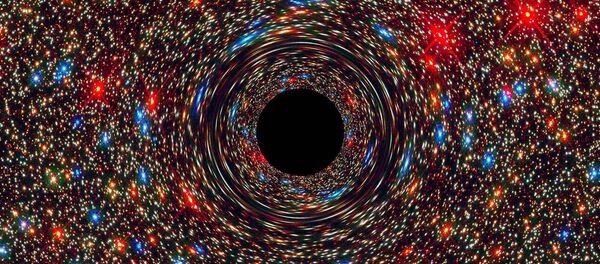Speaking at the start of Harvard's Black Hole Initiative in the US, Professor Hawking shed new light on black holes, reassuring the packed lecture room that:
"If you feel you are in a black hole, don't give up. There is a way out."
The initiative is a research program set up to specifically research black holes; the lecture given by Stephen Hawking also commemorated the 100th anniversary of the publication of Albert Einstein's theory of relativity.
At packed Sanders Theatre, Stephen Hawking tackles contradictory qualities of black holes https://t.co/qpNpUA8VFu pic.twitter.com/k9OSI782Xg
— Harvard Alumni Assoc (@HarvardAlumni) April 20, 2016
Professor Hawking suggests information in black holes could be stored in alternative universes and may not have disappeared forever — as it's often believed.
"Black holes aren't the eternal prisons they were once thought," Hawing said.
"Things can get out of a black hole, both from the outside and possibly through another universe."
According to college newspaper The Harvard Crimson, Professor Hawking joked throughout his lecture to around 1,000 people while he explained that the size of a black hole may be why they hold so much information that might not disappear — reminding the participants that they also emit thermal radiation.
Professor Hawking told the audience that the information stored in a black hole could be likened to an encyclopedia that had been burned. The details are still there — but just much harder to decipher.
"It's like burning an encyclopedia.The information is not lost, if you keep all the ashes. But it's difficult to read."
The universe has no edge or boundary in imaginary time, according to Hawking.
Recent revelations that black holes could be portals to other universes comes not long after the launch of a project headed by Stephen Hawking and Russian billionaire Yuri Milner to reach the stars.
The US$100 million interstellar travel project called Starshot aims to send a robot to Alpha Centauri — the closest star system in the Solar System — in the next 20 years.
However, Hawking admitted to the audience in Harvard that "exactly how [black holes] are able to store so much information is one of the greatest mysteries that we're working hard to unravel."



